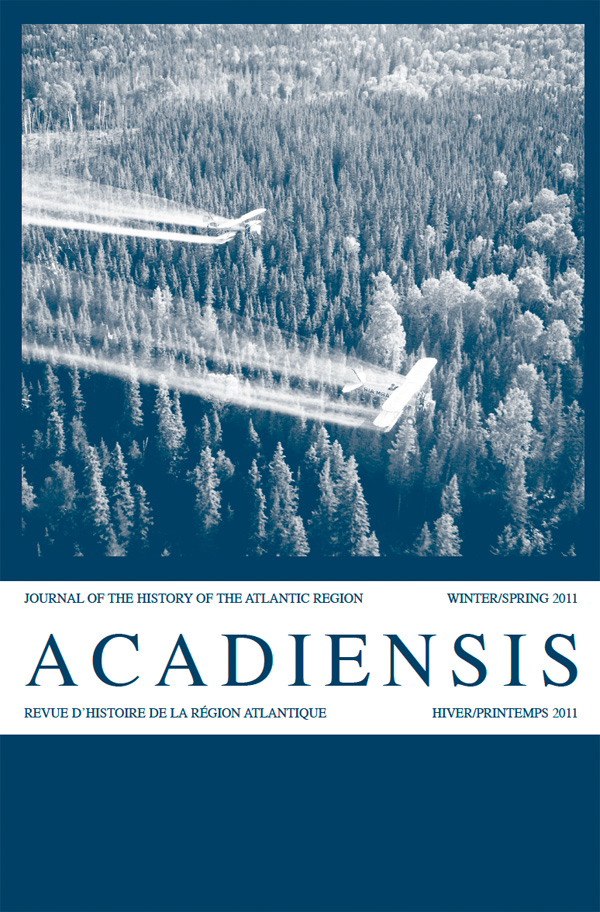Abstract
Modern environmentalism in New Brunswick was triggered primarily by the growth of opposition to New Brunswick’s controversial spruce budworm spraying program in the 1950s and 1960s. While this "Battle of the Budworm" initially arose from concern within sportsmen’s organizations over the effects of the DDT spray on Atlantic salmon, research by the province’s scientific and technical community fostered greater opposition to the spraying – opposition that challenged the provincial government’s traditional stance on resource management. Forest industry and provincial government officials countered assertions of massive ecological damage by arguing that the spraying program was necessary to save the province’s forests and forest industries. Résumé C’est principalement l’opposition grandissante au programme provincial controversé d’arrosage contre la tordeuse des bourgeons de l’épinette, dans les années 1950 et 1960, qui donna l’impulsion au mouvement écologiste moderne au Nouveau-Brunswick. Si à l’origine cette « bataille de la tordeuse » résultait des inquiétudes des associations de chasse et pêche concernant les effets de l’insecticide DDT sur le saumon de l’Atlantique, les recherches menées par la communauté scientifique et technique de la province encouragèrent une opposition accrue à l’arrosage – opposition qui contestait la position traditionnelle du gouvernement provincial en matière de gestion des ressources naturelles. Pour contrer les allégations de dommages à grande échelle causés à l’environnement, les représentants de l’industrie forestière et du gouvernement firent valoir que le programme d’arrosage était nécessaire pour sauver les forêts et les entreprises forestières de la province.Copyright for articles published in this journal is retained by the author(s), with Acadiensis being granted a non-exclusive licence to each and every right in the work throughout the world. After publication of the work, the author(s) shall have the right to self-archive the work and to reprint the work in whole or in part in books authored by or edited by the author(s) without the payment of any fee. In these other formats, however, the author or authors are required to acknowledge the original publication of the work in the pages of the journal. In the case of any requests to reprint the work, Acadiensis will require a standard permission fee -- to be divided equally between the journal and the author. In the event that such requests are received by the author(s), the author(s) shall direct such requests to the journal.

